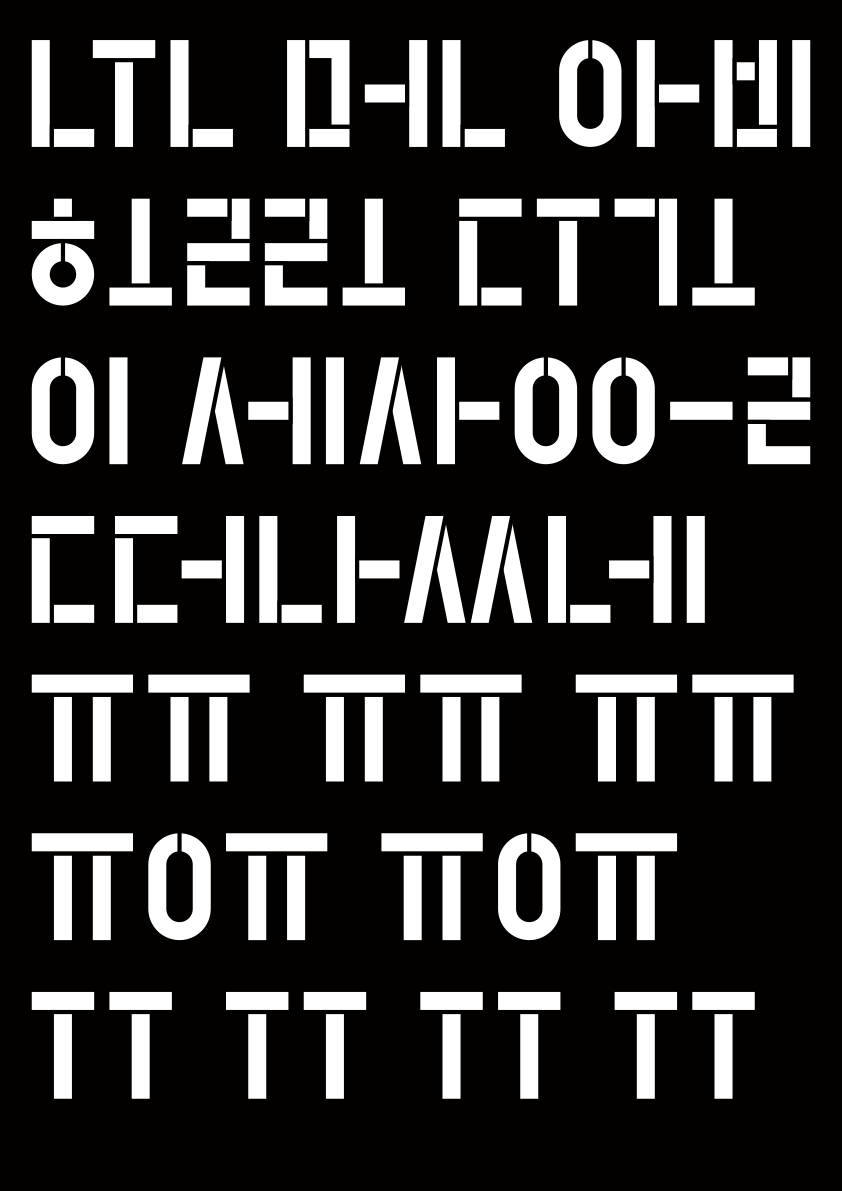
- 2021
- digital image
Klementine
This is a note on universality. At the root of Korean popular music in the early twentieth century, there are songs whose melodies were based on Western folk songs but would be sung with Korean lyrics. “Simcheongga”, for example, was the American song “Oh My Darling, Clementine” rewritten to tell the traditional story. Meanwhile, some Korean scholars in the similar period experimented with an alphabetic, “decomposed” way of writing Hangul, with outcomes that would look like the Latin or Cyrillic writing. With the two seemingly unrelated examples of hybridity at the beginning of modern Korean culture, we think about the source of contemporary K-pop’s universal appeal.
- Project type:
- ambiguous
- Typeface:
- custom letterform